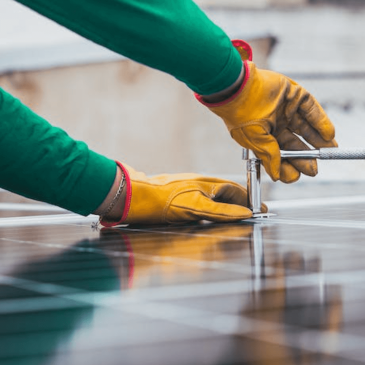Considering Financing Residential Solar in 2023? Read This First
After a rough 2022, which saw solar prices rise for the first time in years due to things like inflation and supply chain issues, things are starting to get back under control and the industry should return to form at some point in 2023. In fact, with supply chain problems already clearing up and with inflation starting to wane, things are already looking up.
And with so many different financing options now available that can help homeowners afford their solar installations, there’s no reason why 2023 won’t be another great year for solar. But of course, to get the best experience possible, you will want to know what factors to consider when choosing to finance your residential solar installation with a solar loan. So, here are seven factors you will want to pay attention to when financing your home’s solar installation.
Credit Score Requirements
Paying for your solar installation in full in cash is always the best option because there are no requirements necessary. But most homeowners simply don’t have that kind of money saved up, so most choose to finance. So, as you might expect, there will be credit requirements that you will have to meet to get approved for your loan.
While lender requirements can vary per lender, in general a FICO credit score in the high 600s will give you a good chance of being accepted for solar financing. If your credit is in the low to mid 600s, then you may be eligible for special state supported loans or financing options, including on-bill financing, which attaches your loan payment to your electric bill.
Down Payment Requirements
Most solar loans do not require down payments. But if you can put money down on your loan, then you may be able to secure more favorable terms or a lower interest rate, so depending on your budget it may be well worth it.
Maintenance Responsibility
One of the best things about solar is that its equipment is very durable. Solar requires very little maintenance to perform adequately. But this doesn’t mean that something might not eventually need fixed or replaced. With solar, the homeowner is responsible for any maintenance that the system might need, like cleaning the surfaces of the solar panels. This is their responsibility regardless of whether they pay in cash or finance their system. In cases where equipment fails, however; the repair or replacement may be covered under the manufacturer’s warranty if the piece is still covered.
Monthly Payment Considerations
Another benefit of paying for your solar installation upfront with cash is that you won’t have to worry about making monthly payments. But if you choose to go with loan financing, then minimum monthly payments will be required to pay off the solar loan. Usually, this monthly minimum payment is fixed, so you can choose to pay more than the minimum if you wish to pay off your loan sooner and reduce what you pay in interest.
Solar Loan Processing Times
Solar loans are processed just like any other type of loan. The approval process depends on financial evaluations, a review of your credit history, and many other factors, so it can take several weeks before your loan is finally approved.
Get the Answers You Need to Feel Confident in Your Solar Loan
Financing your solar installation is a great way to start enjoying all the benefits of solar, including lower energy bills, energy independence, and peace of mind knowing that you’re doing your part to help combat climate change, without having to pay for the entire thing upfront. But it is important that you do your due diligence to help ensure that the loan you get is the right one for you.
Take these considerations in mind and always be sure to ask your lender whatever questions you might have about your solar financing options. Never settle on a loan without having all your questions answered. After all, you want to feel confident in your loan and your lender, and this will make your transition over to solar more successful and satisfying.

